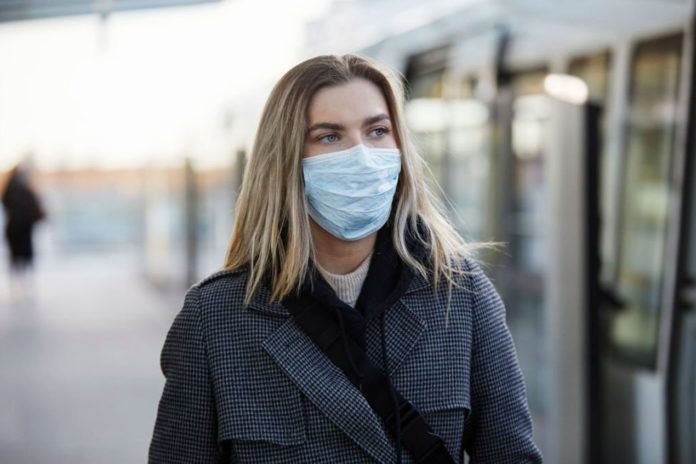After recovering from COVID-19, some people experience symptoms that last for weeks or months. This is also known as “long COVID.” Post-acute sequelae SARS-CoV-2 infection (PASC) is a novel term coined by experts.
In the latest report published in the Annals of Internal Medicine, researchers described the results of a long-term assessment of post-acute sequelae of SARS-CoV-2 infection (PASC), commonly known as long-COVID.
SARS-CoV-2 is a novel coronavirus that has never been found infecting humans before. Coronavirus disease 2019 or COVID-19, a clinical condition caused by SARS-CoV-2 infection, was initially diagnosed in China in late December 2019. More than 526 million people around the world have been infected with SARS-CoV-2 so far.
A substantial percentage of those infected with SARS-CoV-2 have chronic symptoms after their initial sickness. PASC has been connected to a variety of pathophysiologic processes. In addition, current PASC research mainly focuses on evaluating electronic medical records and questionnaire data.
The goal of the current ongoing longitudinal cohort study, which began in June 2020 and is being conducted at the National Institutes of Health Clinical Center in Bethesda, Maryland, was to look into the health implications and long-term symptoms of SARS-CoV-2 infection in a group of COVID-19 survivors and controls. The researchers wanted to study the long-term mental and medical health implications of COVID-19 in a longitudinal cohort of patients recovering from COVID-19 and control participants without a history of SARS-CoV-2 infection. They tried to categorize the clinical findings, risk factors, natural history, and laboratory elements of PASC.
Adults who had been tested and found to have SARS-CoV-2 infection volunteered for the study. Those who were nearly six weeks post-onset of COVID-19 symptoms did not show deteriorating respiratory signs, and had no fever in the week prior to enrolment were eligible. Furthermore, these people were enrolled regardless of whether or not PASC was present. Asymptomatic COVID-19 patients were also eligible four weeks after the initial SARS-CoV-2 positive reverse transcriptase-polymerase chain reaction (RT-PCR) laboratory report.
As a control group, people without a history of COVID-19 infection or serologic confirmation of SARS-CoV-2 infection were chosen regardless of their current health status. Both study groups were recruited at the same time and from the same geographic area.
All subjects had the same examinations, including a physical examination, questionnaires, laboratory testing, cardiopulmonary evaluation, and cognitive function screening, regardless of whether or not they had symptoms. A small percentage of the patients also had exploratory virologic and immunologic testing.
PASC was defined by the authors as any medical illness or symptom that worsened or began after the onset of COVID-19 or the first SARS-CoV-2-positive RT-PCR test in patients with an asymptomatic infection and remained present at the research enrolment visit.
The investigation comprised 189 people with laboratory-confirmed COVID-19, and 12 percent of those were hospitalized during acute SARS-CoV-2 infection, according to the preliminary data. There were also 120 SARS-CoV-2 antibody-negative volunteers in the study. It’s worth noting that the study’s participant recruiting was still going on.
At the time of enrollment, 55 percent of the SARS-CoV-2 group and 13 percent of controls had similar symptoms with PASC, such as chest tightness, dyspnea, and memory loss, according to the authors. They discovered that women and people with a history of anxiety disorders were more likely to develop PASC.
On standardized evaluations, people with PASC-like findings reported a lower quality of life compared to control patients. Findings from abnormal diagnostic tests and physical exams were rare and about the same in both study groups. Despite the fact that SARS-CoV-2 spike (S) protein neutralizing antibody levels were absent in 27 percent of the non-vaccinated COVID-19 group, they were abundant in the vaccinated SARS-CoV-2 cohort. These findings suggest that a subset of COVID-19-recovered patients may have antibody concentrations below the protective level, and that vaccination following natural infection considerably increases viral neutralizing antibodies. Furthermore, exploratory tests in persons with PASC revealed no evidence of persistent autoimmunity, abnormal immunological activation, or viral infection.
In addition, the researchers found that a large proportion of patients infected with SARS-CoV-2 experienced mild to severe acute symptoms that did not necessitate hospitalization. PASC may have been overestimated in this group due to the fact that those with PASC were more inclined to sign up. Furthermore, the current study excluded PASC that was resolved prior to enrollment.
COVID-19-recovered individuals, according to the data, exhibited a considerable burden of persistent symptoms. In most cases, however, a thorough diagnostic examination revealed no specific cause for the symptoms presented. Furthermore, antibody titers against SARS-CoV-2 were very variable in COVID-19 vaccinated people after infection with the virus.
Since there aren’t many publications with detailed diagnostic data and clinical information on PASC, the scientists think that the information they’ve gotten so far from this study will help them understand the severity and nature of the syndrome and will help doctors treat and evaluate patients who have it. It is unfortunate that the pathophysiology of PASC is still a mystery and requires further investigation.
Image Credit: Getty
You were reading: New Study Offers Clues About Root Causes of Long-COVID
